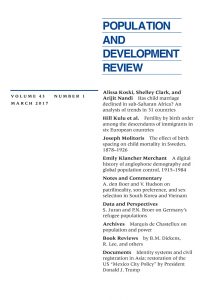The Prescription for Change
Flawed policy networks and health care reform
by christinablunt
 The Washington Post announced President Obama will address a joint session of Congress on September 9 regarding the current heath care system and the administration’s push for reform. The August recess has given an already complex conversation the opportunity to unleash chaos and fear in many parts of the country. Assembly, President Obama will be using this opportunity to reel in the debate. According to the Washington Post it is unlikely that he will provide a detailed proposal of his own; he will rather use this opportunity to comment on proposals that have already been entered in the debate.
The Washington Post announced President Obama will address a joint session of Congress on September 9 regarding the current heath care system and the administration’s push for reform. The August recess has given an already complex conversation the opportunity to unleash chaos and fear in many parts of the country. Assembly, President Obama will be using this opportunity to reel in the debate. According to the Washington Post it is unlikely that he will provide a detailed proposal of his own; he will rather use this opportunity to comment on proposals that have already been entered in the debate.
Progress on health-care reform has been severely stunted by poor and sometimes hijacked communication. This failure is in part due to the complex policy networks involved in this sort of effort. America is large and diverse country with an equally large pool of competing interests and there is a wide variety of powerful actors beyond the government- lobbyist, special interest groups, political pundits, and private industries. In “Policy Networks,” Peter John explains that the policy network idea, an important aspect of political sociology, “neatly suggests the manner in which powerful individuals, located in the maze of public and private organizations that govern a policy domain… connect with each other.” The basic premise of the policy network idea is intuitive- it is in the details and analysis of particular policy network that the resulting discourse becomes illuminating. The policy networks that are formed generally work alongside as well as in conjunction with government actors in a sphere of influence, the details of policy often being worked out beyond the public gaze. In the U.S. policy networks form a “sub-government.” Using rational choice theory and transaction cost analysis to approach policy networks, Hindmoor agues that networks are developed to reduce the transaction costs of policy making and facilitate cooperation. However, the public/private bargaining over a highly nuanced policy leaves the population confused and unreceptive to change. In order to truly reduce the transaction costs of policy making there is a need for the efficiency of networks to facilitate cooperation while remaining transparent in action and purpose.
![]() Read the Article in the Washtington Post
Read the Article in the Washtington Post















1099-1328/asset/dsa_logo.jpg?v=1&s=e4815e0ca3064f294ac2e8e6d95918f84e0888dd)

I would imagine that transparency in this particular instance–health care and insurance–will also facilitate cooperation because of the confusion surrounding these two “products” in our daily lives. Coverage options, co-pays, referrals, HIPAA, and all of the other bureaucracy and policies make accessing health care quite confusing (I think so, anyway). Fear of the unknown would, thus, be increased exponentially in the case of health care policy.
It would seem that policy networks might have something to gain from greater publicity, namely the trust and value of the public.
Keri